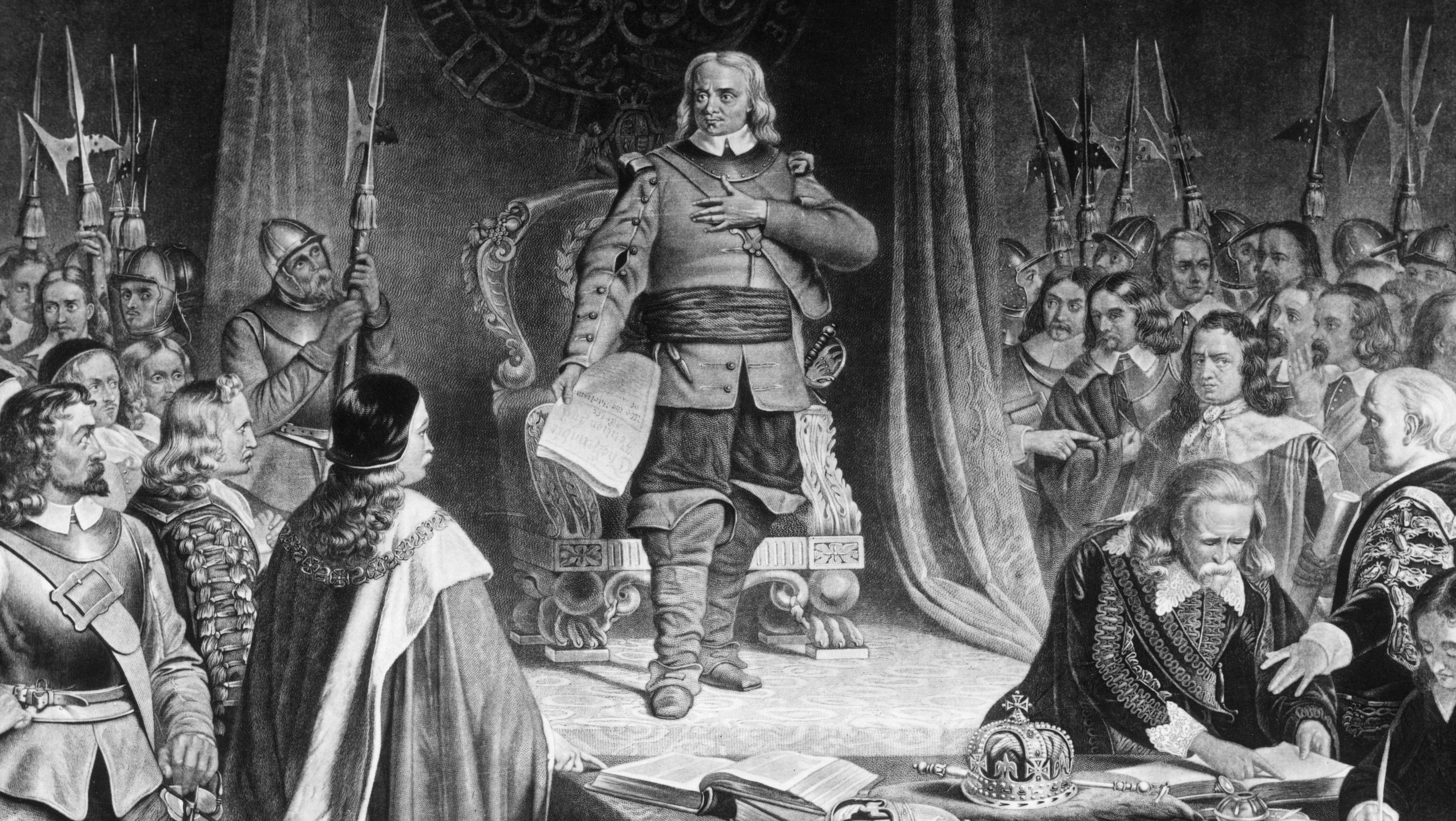Did Oliver Cromwell actually cancel Christmas?
Secret celebrations were known to have continued despite 17th-century laws against festivities

A free daily email with the biggest news stories of the day – and the best features from TheWeek.com
You are now subscribed
Your newsletter sign-up was successful
Boris Johnson said that it would be “frankly inhuman” to cancel Christmas amid growing concerns over the spread of Covid-19 last year.
He wouldn’t have been the first British leader to do so, however. Despite winning the English Civil War and ruling the British Isles for five years, Oliver Cromwell is most commonly remembered as the ruler who did the unthinkable: banning festive celebrations.
The puritan lord protector of England and his religious faction had long campaigned against what they considered to be superfluous additions to the religious calendar.
The Week
Escape your echo chamber. Get the facts behind the news, plus analysis from multiple perspectives.

Sign up for The Week's Free Newsletters
From our morning news briefing to a weekly Good News Newsletter, get the best of The Week delivered directly to your inbox.
From our morning news briefing to a weekly Good News Newsletter, get the best of The Week delivered directly to your inbox.
But while Cromwell was undoubtedly a bit of a killjoy, the famous tale of the 17th-century leader banning festive fun is not entirely accurate.
Was there a Christmas crackdown?
There was a Christmas crackdown in the 1600s. In 1644, King Charles I was still on the throne but was battling against troops loyal to the English parliament in the First English Civil War.
The monarch had ruled alone without Parliament from 1629 to 1640 before being forced to summon MPs to help him raise taxes to stamp out a rebellion in Scotland. When Parliament demanded radical reforms, civil war broke out in 1642.
Many people, particularly the more zealous protestants, or “puritans”, feared King Charles wanted to restore England to the Catholic fold, explained BBC History, and celebrations of Christ’s birth were considered to have been derived from the Roman Catholic Church, “thus threatening their core Christian beliefs”, said the BBC.
A free daily email with the biggest news stories of the day – and the best features from TheWeek.com
Restrictions on Christmas were introduced by the puritan-dominated House of Commons in 1644.
Many puritans considered festivities and carol singing as “not only abhorrent but sinful”, said the BBC. There had also been complaints that the celebration was an excuse for “for drunkenness and debauchery”, said The Times.
“Christmas was renamed ‘Christ tide’ to avoid any reference to Roman Catholic ‘Mass’ and deemed to be an ordinary working day.”
Christmas activities, such as dancing, games, singing carols and especially drinking, were eschewed in favour of sober religious contemplation for 25 December.
Oliver Cromwell’s involvement
Author Katherine Clements said that while Parliament was reforming Christmas, Cromwell was “probably more concerned with winning victories” on their behalf as a principal commander of the New Model Army against the king’s troops at Marston Moor in 1644 and Naseby in 1645.
Following King Charles I’s execution in 1649 and the parliamentary victory in the civil war, Cromwell became Lord Protector of England, Scotland and Ireland in December 1653 – by which time the Christmas policy was firmly in place.
Nevertheless, John Goldsmith, chairman of the Cromwell Association, told The Times that Cromwell must have approved of the Christmas ban as it continued under his rule until he died in 1658.
History Extra says the legislation was “deeply unpopular” among the public and “when King Charles II returned to power in 1660, one of his first acts was to repeal all the anti-Christmas legislation, helping foster his image as the ‘Merry Monarch’”.
A return to Christmas
History Extra says the legislation was “deeply unpopular” among the public, and the “festive spirits of English men, women and children were not to be so easily silenced”, the BBC noted.
During the almost 20 years that the ban was in place, Christmas “didn’t pass quietly”, said Martyn Bennett, professor of early modern history at Nottingham Trent University, writing for The Conversation. “Semi-clandestine religious services marking Christ’s nativity continued to be held on 25 December,” said the BBC.
The new rules were “flouted” in England, Scotland and Ireland, with some local traditions – such as a festive football game held annually in Canterbury – continuing undisturbed, said Bennett.
With the English monarchy restored in 1660, one of King Charles II’s first acts was to revoke the Christmas ban, for which he is still known as the “Merry Monarch”.